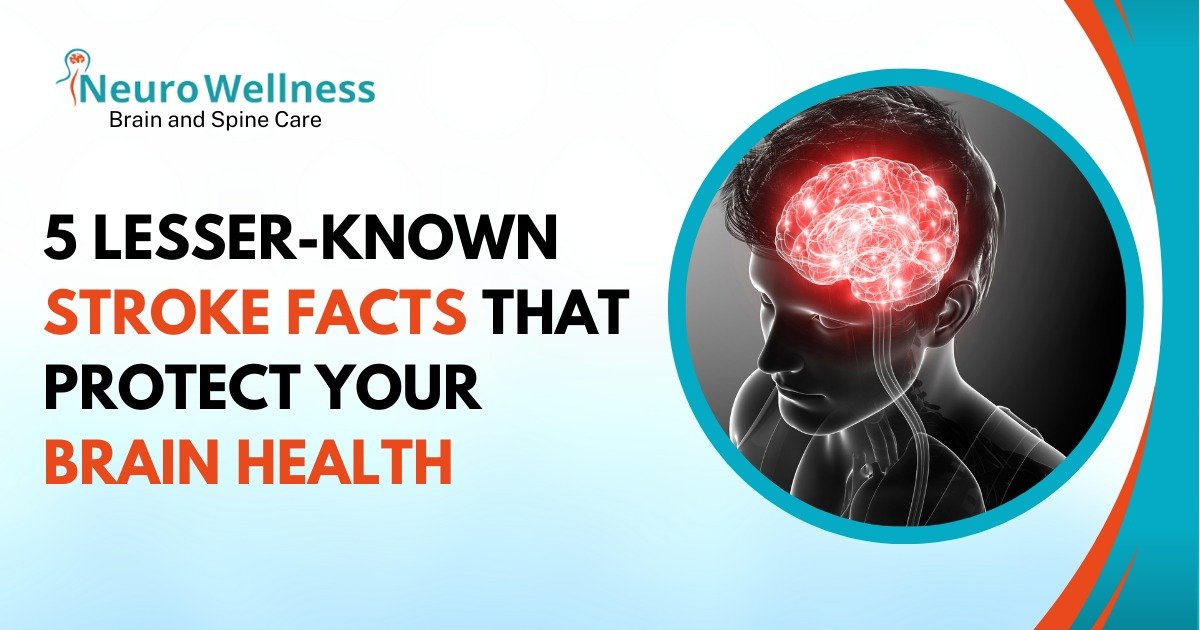Understanding stroke facts and brain health is essential for everyone, not just the elderly.
While many imagine stroke as something that only happens to older adults, the reality is different.
Strokes can strike young professionals, remain silent for years, or even be triggered by unexpected causes.
These hidden aspects often go unnoticed until it’s too late. By learning the lesser-known stroke facts, families can spot warning signs early, take preventive steps, and protect their brain health.
Awareness is the first step to prevention—and knowing these insights could save your life or the life of someone you love.
Here are five eye-opening stroke topics that every family should be aware of.
1. Stroke in Young Adults – Yes, It Can Happen in Your 20s or 30s
2. Silent Strokes – The Damage You Don’t Even Notice
Not every stroke announces itself dramatically. Some strokes are silent, creeping in without obvious warning. No collapse, no slurred speech—just tiny, unnoticed injuries to the brain.

Dr. Ganesh Veerabhadraiah
Consultant – Neurosurgeon, Neurointerventional Surgery, Spine Surgeon (Neuro)
23+ Years Experience Overall (17+ years as Neuro Specialist)
Available for Consultation: Jayanagar 9th Block & Kauvery Hospital, Electronic City
3. Mini-Stroke (TIA) – The Body’s Alarm Bell
A Transient Ischemic Attack (TIA) is often called a mini-stroke. Symptoms appear suddenly—like weakness, blurred vision, or slurred speech—but vanish within minutes to hours.
Because the symptoms disappear, people brush it off: “Maybe I was just tired.” But in reality, a TIA is the body’s alarm bell. It’s like your brain whispering: “Pay attention, something is wrong.”
In fact, 1 in 3 people who suffer a TIA may have a major stroke soon after if they ignore it.
Read more: Top 7 things you need to know about transient ischemic attack stroke treatment in bangalore
Message: If stroke-like symptoms appear and disappear, don’t relax—rush to a hospital. Acting fast can prevent a disaster.
4. Unusual Stroke Triggers – Beyond Blood Pressure and Diabetes
Most people know high BP, diabetes, and cholesterol cause stroke. But there are surprising and lesser-known triggers too:
A sudden jerk to the neck during sports or even a fall can tear an artery and cause a stroke.
ㆍWomen on birth control pills who smoke are at higher risk of clots.
ㆍSleep apnea a condition where breathing stops repeatedly during sleep can silently increase stroke risk.
ㆍEven dehydration or too many energy drinks can thicken the blood and increase clot formation.
One young athlete was shocked to discover his stroke came from a neck injury after a routine workout. These unusual triggers remind us that stroke can sometimes strike in unexpected ways.
Lesson: Listen to your body. Persistent headaches, sleep problems, or unexplained dizziness deserve medical attention.
5. Life After Stroke – Hidden Struggles Few Talk About
When someone survives a stroke, families often celebrate that they can walk or talk again. But what many don’t see are the hidden struggles survivors face every day.
Depression, anxiety, fatigue, and problems with memory or focus are common. A stroke survivor may look “normal” to outsiders but feel broken inside. Imagine the frustration of forgetting words mid-sentence or losing confidence in simple tasks.
Recovery isn’t only about physiotherapy. It’s also about emotional healing and family support. Encouraging words, counseling, and patience can make all the difference in helping someone truly reclaim their life after stroke.
Reality check: Stroke recovery is a journey for both patients and families. Understanding hidden challenges makes the path smoother.
Expert Stroke & Brain Health Care in Bengaluru
When it comes to preventing and treating strokes, having the right specialist makes all the difference. Dr. Ganesh Veerabhadraiah is one of the best neurosurgeons in Bangalore, with extensive experience in brain and spine surgery, stroke management, neurovascular treatments, and minimally invasive neurosurgery.
If you or your loved ones are at risk of stroke or experiencing neurological symptoms, consulting a neuro specialist in Bengaluru like Dr. Ganesh could be life-saving.
Final Thoughts – Awareness Saves Lives
Stroke is not just a sudden illness; it’s a life-changing event that often comes with warnings we fail to notice. Silent strokes, mini-strokes, unusual triggers, and hidden disabilities deserve our attention just as much as paralysis or speech loss.
Awareness is prevention. If you or your loved ones notice warning signs, don’t delay seek help immediately.
FAQs
1.Can stress alone cause a stroke?
Stress by itself may not directly cause a stroke, but chronic stress raises blood pressure, increases unhealthy habits (like smoking or poor sleep), and accelerates artery damage. Together, these factors raise stroke risk significantly.
2.How can I identify a stroke quickly?
Remember the FAST test:
• Face drooping
• Arm weakness
• Speech slurred
• Time to call emergency help
If you notice any of these signs, don’t wait—call for medical help immediately.
3.Is a mini-stroke (TIA) less serious than a stroke?
No. A TIA is equally serious because it is often the warning sign of a bigger stroke to come. It needs urgent medical evaluation and preventive treatment.
4.Can young, healthy people really get a stroke
Yes. Even fit young adults can get a stroke due to unusual causes like neck injuries, clotting disorders, or lifestyle risks. Staying alert to symptoms can be life-saving.
5.What is the recovery time after a stroke?
Recovery depends on the severity and how fast treatment started. Some people recover in weeks, while others may need months of rehabilitation. Early treatment and continued therapy make the best difference.

